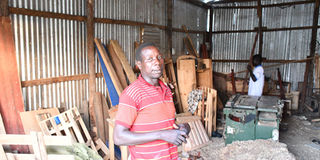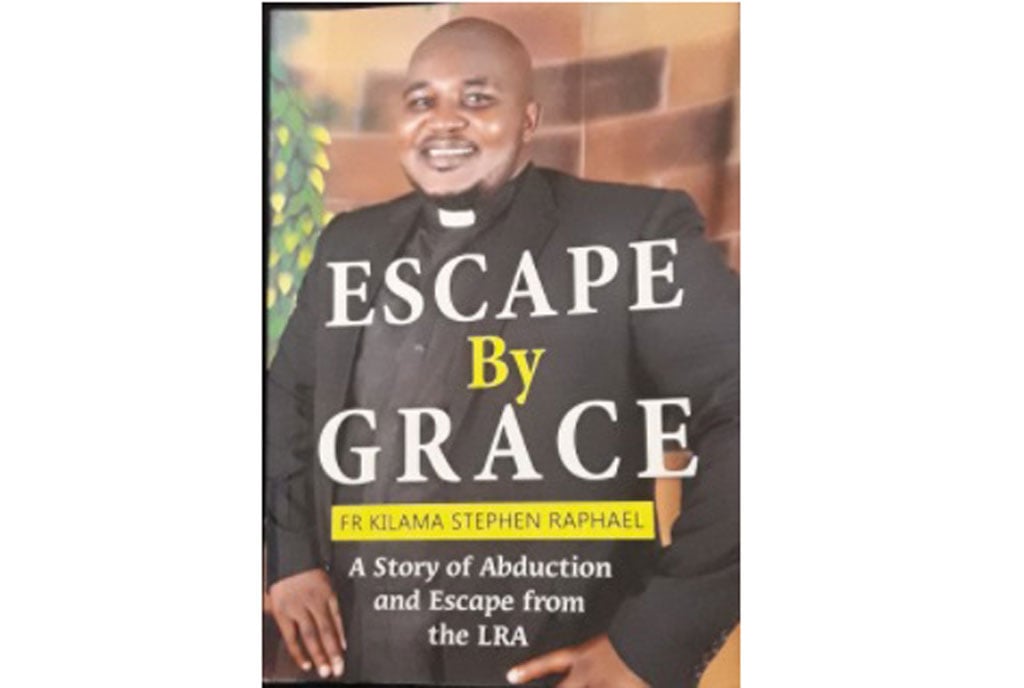Prime
Skills training pays off for ex-LRA abductees

Mr Patrick Oryem Lumumba at their workshop in Patongo Town Council, Agago District. PHOTO/TOBBIAS JOLLY OWINY
What you need to know:
- Skills have enabled former child soldiers to rebuild their lives, gain independence, and provide for their families
In 1997, Mr Patrick Oryem Lumumba was forcibly abducted by the Lord’s Resistance Army (LRA) and endured over two decades of captivity. Like his colleague, Stephen Okot, Oryem escaped the clutches of the LRA in the Democratic Republic of Congo (DRC) and returned to freedom in 2019, marking a significant shift in their lives.
Oryem now resides in Patongo Town Council, Agago District, where he recalls the traumatic events of his abduction from Too-coo village, Lukwangole parish, in Patongo Sub County in 1997.
As a child soldier in the LRA, he says: “Life in the camp was harsh,” he recalls, “a stark contrast to the comforts of home. Rain was a constant companion during our marches,” he remembers, noting that they often trekked distances of 20 to 100 kilometers without rest until reaching their destination.
“Rest came only after hectic training and deployment. Complaints of fatigue were met with punishment or worse, which could result in death,” Oryem explains.
Meanwhile, Stephen Okot, abducted in 2001, endured 19 years in captivity before his escape in mid-2019.
“Returning home in December 2019 felt like descending into a personal hell,” Oryem laments. “My mother’s passing, the upheaval in our village, it was a devastating homecoming,” he says.
Oryem’s recovery journey began with the support of Terra Renaissance, a non-governmental organisation based in Gulu City.
Reflecting on the lost educational opportunities due to conflict, he found hope through vocational training.
“Life at home once I returned was horrible; there was no starting point, prompting a quest for survival. Thankfully, this NGO reached out to us in the village and enrolled us in training that lasted two years,” he shares.
Although the Covid-19 pandemic interrupted their training, Oryem and his peers persevered, eventually completing their woodworking education. With these new skills, Oryem started rebuilding his life, gaining independence, and providing for his family.
“Working transformed my existence,” he asserts. “It afforded me independence, sustenance for my family, and a renewed sense of purpose.”
In the same workshop, Mr Okot and three other former captives have been able to save money and invest in modern woodwork equipment.
“We graduated from the institution, formed groups of five, and were given start-up tools to open a workshop in Patongo. Last year, we expanded our workspace and bought equipment worth over Shs17 million,” Okot says.
The group members have also joined a voluntary saving and loan association, enabling them to save and invest.
Okot, for instance, borrowed funds to expand his farming venture and purchase land in the town.
More than 1,000 births in captivity and 500 former child soldiers have been rehabilitated through the efforts of Terra Renaissance.
Ms Rebecca Abalo, the organisation’s project officer, emphasises the importance of reintegration and peacebuilding to prevent future violence.
“We offer vocational training, basic education, and peace education to over 500 returning former child soldiers and the wider community,” she explains. Additionally, the organisation provides microfinance and credit services to ex-combatants and vulnerable community members.
“Partnering with organisations like Transcultural Psychosocial Organisation (TPO) and ‘Watye Ki Gen,’ Terra Renaissance extends support to all 1,175 children born in captivity. We continue registering war victims for rehabilitation at their centre in Gulu,” Ms Abalo explains.
Despite the tragedies inflicted by the LRA, communities are healing, one individual at a time. Through education, vocational training, and psychosocial support, former combatants are reclaiming their lives and reshaping their futures.
THEY SAY
“Life at home once I returned was horrible; there was no starting point, prompting a quest for survival. Thankfully, we enrolled in training that lasted two years,’’ Mr Patrick Oryem Lumumba
“We graduated from the institution, formed groups of five, and were given start-up tools to open a workshop in Patongo. Last year, we expanded our workspace,’’ Stephen Okot




